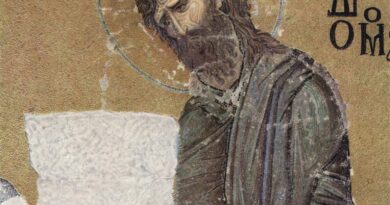Solemnity of Epiphany
Massimo Palombella

The term “epipháneia” was used by the Greeks to indicate the action or manifestation of a divinity (through miracles, visions, signs, etc.).
In the third century, Christians began to use the term “Epiphany” to indicate the divine manifestations of Jesus. Among these manifestations, three were particularly emphasized: the adoration by the Magi (Mt 2,1-12), the Baptism of Jesus in the Jordan (Mt 3,13-17) and the first miracle that took place in Cana of Galilee (Jn 2,1-11). This is witnessed in the antiphon to the Magnificat of the second Vespers of today’s solemnity clearly describes (“Tribus miraculis ornatum diem sanctum colimus: hodie stella magos duxit ad praesepium; hodie vinum ex aqua factum est ad nuptias; hodie in Iordane a Ioanne Christus baptizari voluit, ut salvaret nos, alleluia” [Three wonders mark the day we celebrate: today the star led the Magi to the manger; today water was changed into wine at the marriage feast; today Christ desired to be baptized by John in the river Jordan to bring us salvation, alleluia]).
Like the Magi, we too must follow the star and thus move, change, enter into a logic where being “still” should not exist. The only ones who do not move are those who want to consolidate their power, as Herod did and as we are all subtly tempted to do. In fact, not changing one’s mind, not changing one’s judgement on reality, clinging to the security of ‘tradition’, of things that are ‘certain and safe’, deep down all this implies a great fear of reality, a fundamental inadequacy to life, of necessary separations not made. This is an area of our existence where all of us, if we are not vigilant, are not a little tempted.
To truly live we must follow the star, we must set out on our journey. We do not know how long, arduous or pleasant the journey will be, or where the star will take us. The only thing we know for sure is that, like the Magi, we will experience great joy at the end of the journey.
The Offertory Antiphon for today’s celebration is taken from Psalm 71 (Ps 71:10, 11) with the following text:
Reges Tharsis et insulae munera offerent,
reges Arabum et Saba dona adducent,
et adorabunt eum omnes reges terrae, omnes gentes servient ei.
(The kings of Tarshish and the islands shall offer presents;
the kings of the Arabia and of Sheba shall bring gifts;
all the kings of the earth shall adore him, all nations shall serve him).
The attached music, in Gregorian Chant, is taken from the Graduale Triplex published in Solesmes in 1979. The interpretation is by the Schola Gregoriana Monacensis conducted by Johannes Berchmans Göschl.
A blessed Feast and heartfelt greetings.


